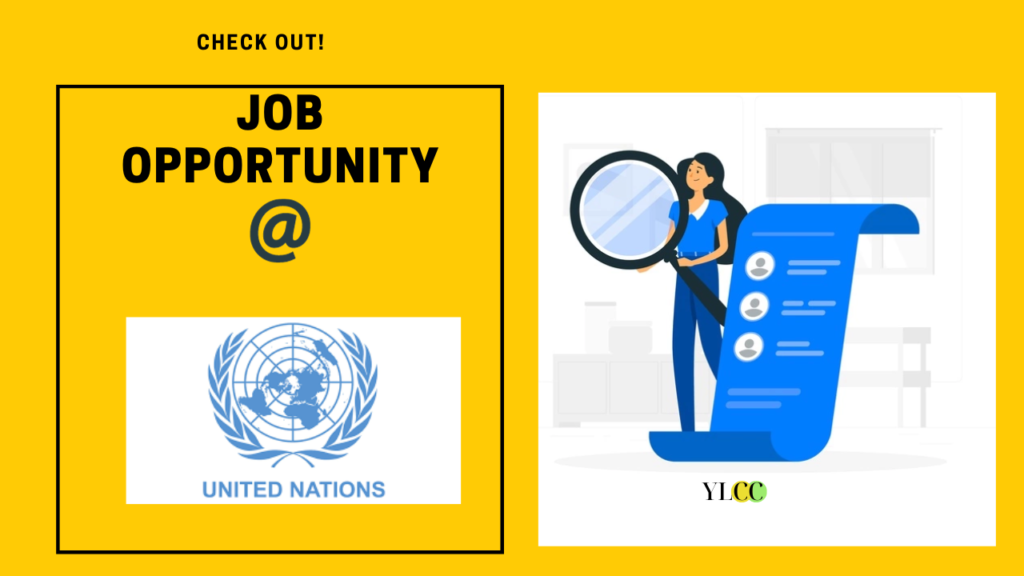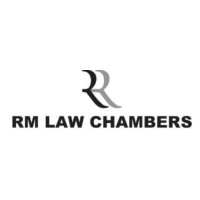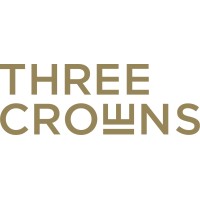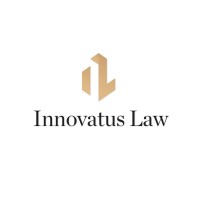
Are you a law graduate/ legal professional looking for job opportunities as a Human Rights Officer (Legal Officer)? This opportunity might be of interest to you!
About:
The United Nations is an international organization founded in 1945. Currently made up of 193 Member States, the UN and its work are guided by the purposes and principles contained in its founding Charter.
The UN has evolved over the years to keep pace with a rapidly changing world.
But one thing has stayed the same: it remains the one place on Earth where all the world’s nations can gather together, discuss common problems, and find shared solutions that benefit all of humanity.

Role:
Human Rights Officer (Legal Officer)
Location:
Nairobi
Qualifications:
1. Professionalism: Knowledge of international legal procedures and instruments, including international human rights, both substantive and procedural. Ability to apply legal expertise to analyzing a diverse range of complex and unusual legal issues and problems. Knowledge of the international human rights law and ability to assess and identify human rights violations in their political, ethnic, racial, gender equality and socio-economic dimensions. Knowledge of institutional mandates of human rights organizations, prevailing policies and procedures. Research and analytical skills, including ability to identify and participate in the resolution of human rights issues. Ability to identify sources for data collection, research and analyze information and draft human rights reports. Ability to evaluate and integrate information from a variety of sources and assess impact on the human rights situation in the area of assignment. Strong analytical skills and ability to conduct comprehensive legal research on a range of issues, including those of a unique and/or complex nature; proficiency in legal writing and expression and ability to prepare legal briefs, opinions, indictments or legal submissions/motions, and a variety of legal instruments and related documents. Ability to lead and cross-examine witnesses and make substantial legal arguments before Chambers of judges, or if required to take responsibility for the prosecution of criminal trials. Discretion and sound judgment in applying legal expertise to sensitive, complex legal issues. Strong negotiating skills and ability to influence others to reach agreement. Ability to work to tight deadlines and handle multiple concurrent projects/cases. Knowledge of contemporary international relations and of UN system, organization and interrelationships. Shows pride in work and in achievements; demonstrates professional competence and mastery of subject matter; is conscientious and efficient in meeting commitments, observing deadlines and achieving results; is motivated by professional rather than personal concerns; shows persistence when faced with difficult problems or challenges; remains calm in stressful situations. Takes responsibility for incorporating gender perspectives and ensuring the equal participation of women and men in all areas of work.
2. Teamwork: Works collaboratively with colleagues to achieve organizational goals; solicits input by genuinely valuing others’ ideas and expertise; is willing to learn from others; places team agenda before personal agenda; supports and acts in accordance with final group decision, even when such decisions may not entirely reflect own position; shares credit for team accomplishments and accepts joint responsibility for team shortcomings.
3. Communication: Speaks and writes clearly and effectively; listens to others, correctly interprets messages from others and responds appropriately; asks questions to clarify, and exhibits interest in having two-way communication; tailors language, tone, style and format to match audience; demonstrates openness in sharing information and keeping people informed.
4. Education: Advanced university degree (Master’s degree or equivalent) in international law, international criminal law or another discipline related to human rights is required. A first level university degree in the mentioned fields of studies, in combination with two additional years of qualifying work experience may be accepted in lieu of the advanced university degree.
5. Work Experience: A minimum of five years of progressively responsible experience in international human rights law, international humanitarian law and/or international criminal law is required.
Relevant working experience in a judicial institution or accountability mechanism providing legal analysis on international human rights law, international humanitarian law and/or international criminal law is desirable.
Relevant working experience in/on the region is desirable.
6. Languages: English and French are the working languages of the United Nations Secretariat. For the position advertised, fluency, in English (both oral and written) is required. Fluency in Arabic is desirable. Knowledge of another UN official language is an advantage.
Responsibilities:
Within delegated authority, the Human Rights Officer (Legal Officer) will be responsible for the following duties:
– Handles a range of issues related to international human rights, humanitarian and criminal law, including interpretation and application of relevant legal instruments;
– Conducts extensive legal research and analysis on the body of information and evidence collected by the Secretariat with a view of identifying individual criminal and command responsibility; assesses evidence for relevance, admissibility, and shareability in conformity with established OHCHR consent practices;
– Conducts analysis and research on various legal matters pertaining to the investigation, and contributes to drafting the investigation plan;
– Analyzes and advises the team on matters related to the applicable legal framework and the legal standards applicable to the human rights situation under investigation;
– Provides advice on different legal issues and assists in drafting legal opinions, memoranda and other briefing documents for the Fact-Finding Mission staff;
– Ensures legal accuracy of all documents, including reports, submissions, press releases etc., prepared by the Fact-Finding Mission;
– Assists in the drafting of the legal framework and analysis of the Fact-Finding Mission’s reports and ensures consistency of findings, conclusions and recommendations with the mandate, applicable law and information gathered
– Identifies trends and patterns of human rights violations and abuses, and violations of international criminal law and international humanitarian law;
– Conducts information gathering activities under the guidance of the Fact-Finding Team Leader, including interviews and the collection and analysis of open sources material and satellite imagery.
– Ensures the legal analysis and legal qualification of the findings integrate gender perspective, reflecting the gender dimensions and gendered impact of the violations.
– Performs other duties as required.
How to Apply:
Interested candidates can Apply here (click here)
We have taken all measures to ensure that this opportunity, available in the corporate domain, is uploaded/provided/given on our social media platforms, including our website, and is credible, verified and sourced from authenticated/trustable sources.


![Job Opportunity [Human Rights Officer (Legal Officer)] @ United Nations: Apply Now!](https://yourlegalcareercoach.com/wp-content/uploads/2023/10/un.png)





